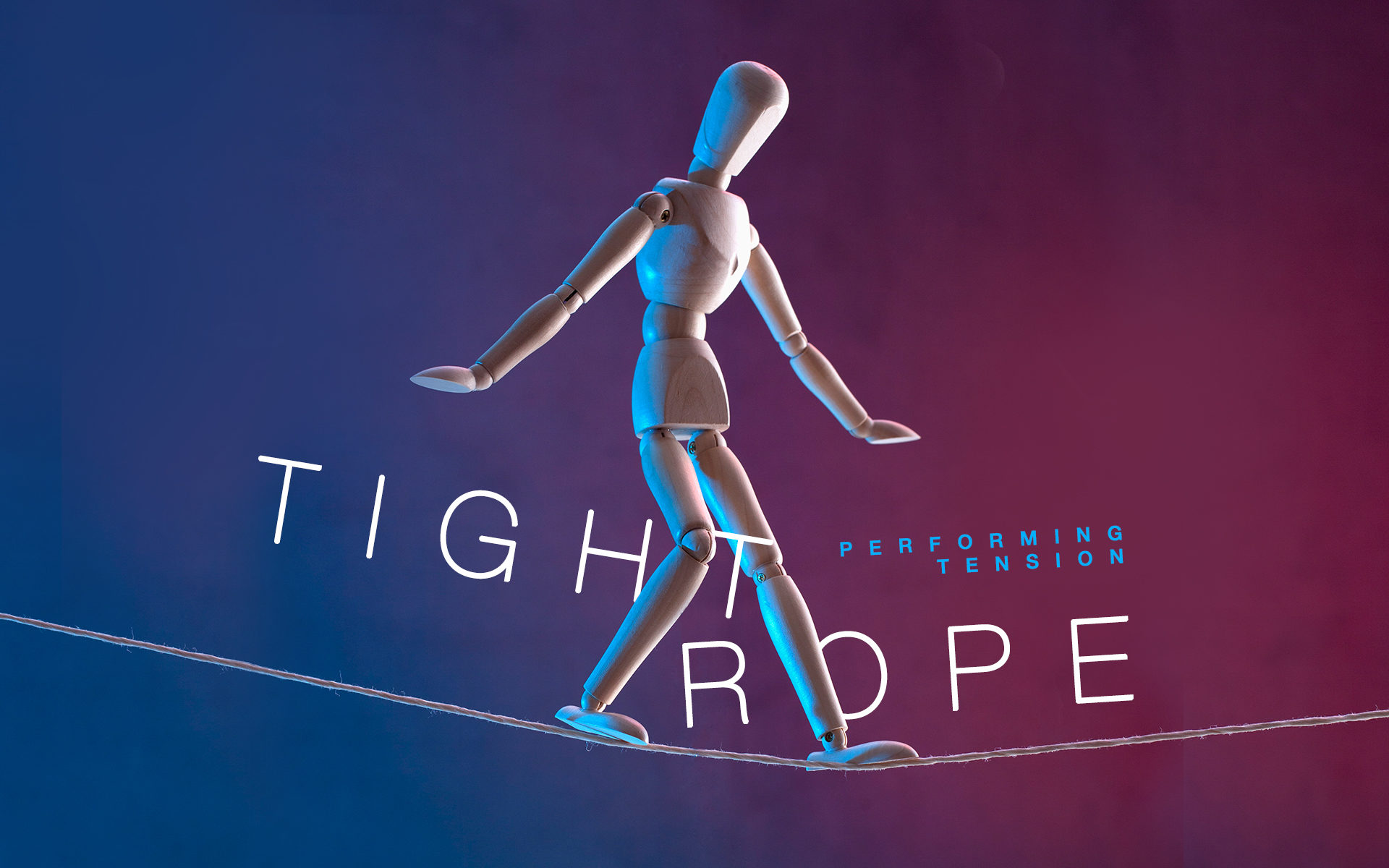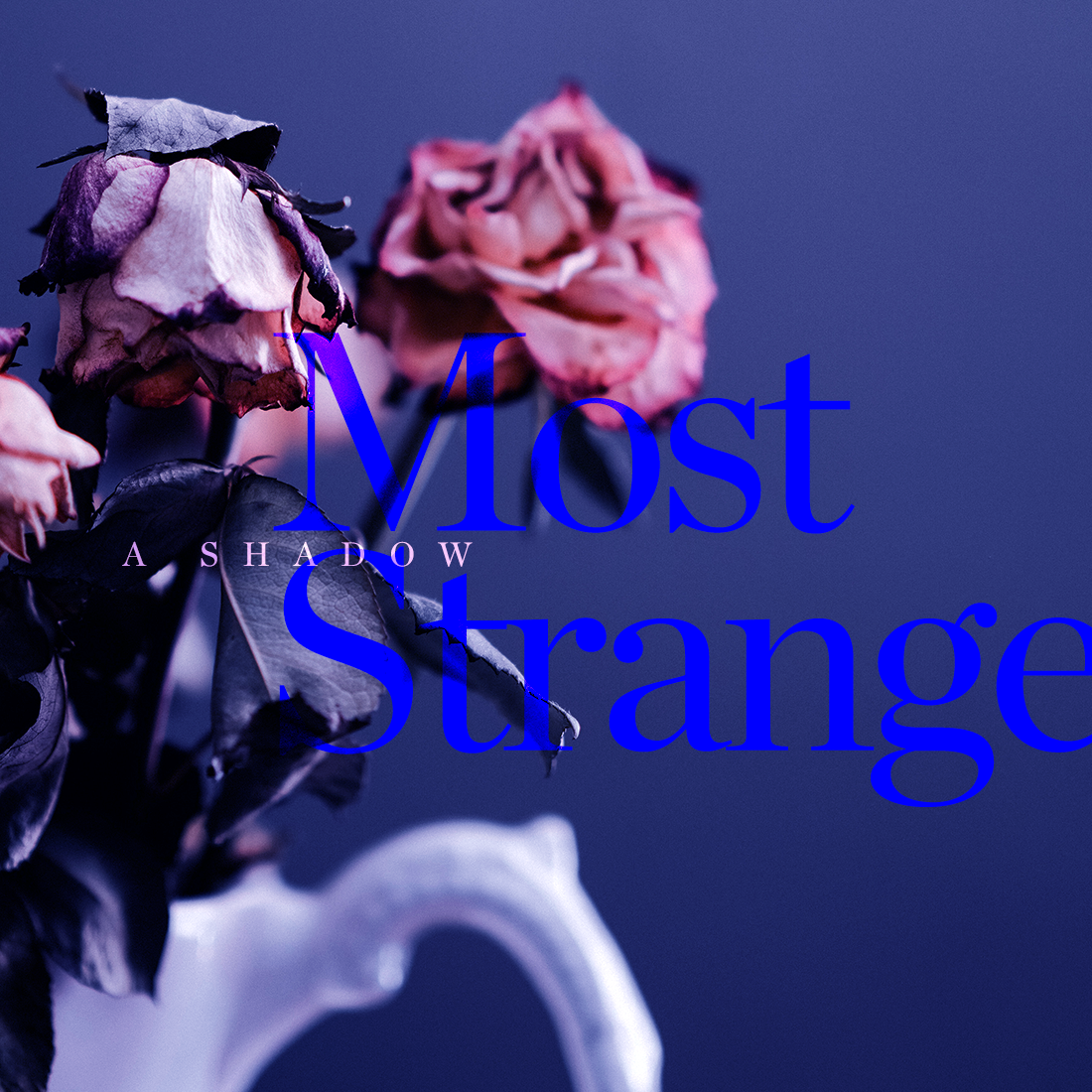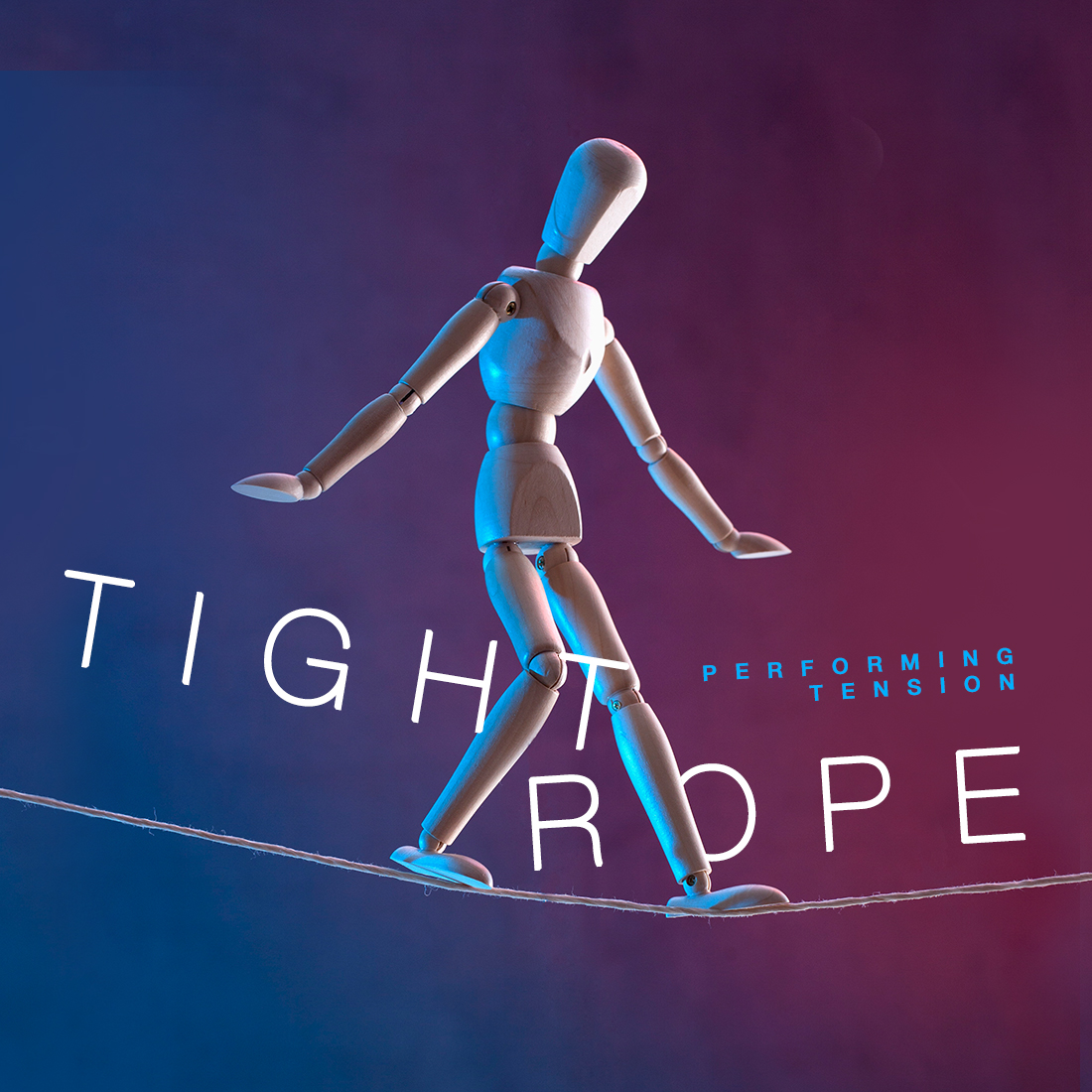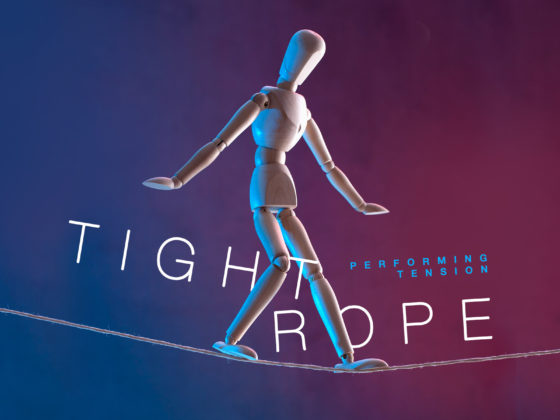TAYLOR BARTON
Editor’s Note: TW: in describing Catharsis Productions’ work in sexual assault prevention education, this article discusses rape and sexual assault.
One year.
This is the length of time prescribed by most rape crisis centers in my city before one is “recovered” enough to qualify as volunteer potential. I say potential because although waiting one year is a good start, there’s no guarantee that 365 days’ distance from your own trauma will put you safely in the camp of capable helper. One must prove that they are past the “helpee” phase of life.
Most of this proof comes through interviews: the goal is to ensure that no one who has been sexually assaulted or received legal, medical, or counseling services for sexual assault within the past year will be put in the position of intervening in a crisis from which they themselves are not yet mended. Some organizations go as far as to mandate that the year extends past services for one’s own trauma to services connected to immediate family members.
The objective is to ensure quality of care and to uphold the standard of professionalism that most funding sources have come to expect from the causes to which they donate. It’s also to protect the ability of the organization to maintain a healthy distance from the survivor. The goal lists “healed” as a job qualification.
The goal is kind of bullshit.
Source: Catharsis Productions/Instagram
Catharsis Productions is one of the only sexual assault-focused enterprises in Chicago that has nothing to do with timelines. Part of this is laid out in its mission: Catharsis’s focus is sexual assault prevention education. Although some of the programming deals in responding to survivorship in one’s community, the greatest message from Catharsis is in stopping sexual assault before it can even occur, by changing the culture that creates it. This is done in greatest part through live presentations infused with comedy and theatre. Catharsis is for-profit, and thus not beholden to donors or foundation grants to keep its lights on. Its mottos are to fight fire with funny, and to meet people where they are.
Catharsis Productions presents “Beat the Blame Game” | Source: Catharsis Productions/YouTube
When I first applied to work at Catharsis Productions, there were zero questions about whether I had experienced rape or even knew someone working through that trauma. The only questions were how I felt about the sensitive task at hand, and what I could turn my passion into for the cause. Compared to any other major organization doing this type of work, I had an almost unsettlingly easy time centering my interviews on my job skills and not my own personal journey. But then, I applied to Catharsis Productions before I knew I was a survivor.
Before my current position, I worked for Catharsis as a Sales and Marketing Associate. It was completely new to me, and I loved being overwhelmed by the sheer behemoth of learning I had to do. My directors were gracious, intuitive, and razor sharp when it came to an audience’s perspective, just as they were about their team. I often wondered, after the brick wall of survivorship hit me: who realized it first? My boss or me?
When I started identifying with more and more of the content I was researching at work; when memories began surfacing, ones that I had unwittingly shoved into the lock-box of my brain; when flashbacks began removing me from entire chunks of present life, I grasped that something was wrong. At the time, I figured something had to be wrong with me.
That tension was in the room, palpable and distracting in moments we were trying to control. And that’s when I learned what meeting them where they are really means.
I called one of the hotlines recommended on my employer’s website and found myself in counseling at a not-for-profit center on the Northside. The cognitive behavioral therapy I received there was truly life-saving, and years later is still the biggest tool in my arsenal against a sense of ignominy. But at the time I couldn’t share this tool. While tremendously accepting of survivors in our program, I was afraid to name my trauma for my coworkers (in retrospect, the people in my life who were probably best equipped to respond). I thought that by doing so I would be deemed unfit: too close to the issue to see it clearly, and thus powerless to help make social change. So I went undercover.
My tenure as a secret agent was short, but not without its challenges. I had to leave work early every Thursday to make it to my “doctor’s appointments.” I spent what I was sure were highly suspicious amounts of time in the employee bathroom, splashing cold water on my face and muttering grounding exercises to myself whenever the subject matter became triggering. In a workplace full of empathetic, trained social justice warriors, I was in possession of a dirty, disqualifying secret.
The hardest part was the promotion.
When I became one of Catharsis’s Educators, I knew it would be dicey. Although a year into therapy and feeling very much in charge of my own story, I was terrified of messing up, of becoming too personal, of crying onstage when I should have been strong. These thoughts were more present in my mind than my actual lines, or the importance behind them. The tension took hold in my frantic fidgeting, my locked jaw, my lack of sleep. I believed that in order to do the work well I had to be perfect: informed with up-to-the-minute statistics, unflappable in my ability to crowd control, a redolent symbol of female sexuality onstage (often as the only female-identifying human in the room for a show literally titled Sex Signals), and side-splittingly funny to boot.
“Sex Signals” by Catharsis Productions | Source: Catharsis Productions/YouTube
In short, I lost all faith in my abilities as a trained and talented actor or subject matter expert (both of which I was and am).
One day, one of my directors sat me down and asked what I was so afraid of. I told him I didn’t want to cause harm. By being vulnerable in this (I still couldn’t voice the word “survivor”), I felt I had compromised the mission. He threw down his pencil.
“Taylor,” he blurted, “unless you walk onstage and say ‘rape ain’t so bad,’ that is not what will happen.”
At Catharsis we identify both as educators and actors, with art and research in equal measure filling our toolbox. We utilize improvisation, standup and traditional theatre as a mode of entry to what’s usually either a pretty nasty or else pretty boring conversation about sexual assault. One of the practices I’m most proud of is that we do not bifurcate art and activism: both are gateways which feed the other. Because of this duality, I went on the road and found myself dancing out a two-step. When the subject matter became too heavy for me, I reached out for a moment of humor with my audience. When acting out scenes as a target of harassment brought on flashbacks, I dove into the learning objectives. I focused on the faces of audience members who, it turned out, were just as anxious and eager to be correct as I was. That tension was in the room, palpable and distracting in moments we were trying to control. And that’s when I learned what meeting them where they are really means.
Giving oneself the opportunity to be vulnerable enough to be wrong presupposes that you deserve care: you deserve the grace and patience necessary for someone to bring you from where you are to where they are.
Once, in the hundred-degree heat of summer, we had an audience member who simply could not accept the line on getting sober, active consent.
“When my wife is lying still, that’s the signal for me to climb on! She won’t let me otherwise!” he announced. Some of his peers giggled nervously, but most of the room was uncomfortable.
My partner and I glanced at each other. Fielding questions is part of the job description, but we didn’t have a one-liner for this statement. It made my skin crawl. Finally, I turned back to the student.
“Bro, that sounds creepy as hell,” I told him.
The room erupted in laughter. I was afraid I’d shut down this individual, but watching him while the room released the tension they’d been holding, I saw him chuckling too. By being playful with him, we were able to let him off the hook for feeling defensive in a serious way. This was someone with obviously problematic ideals who was choosing to buy into the rest of our show, because he was neither villainized nor lauded. He was on a journey, like the rest of us.
Catharsis Productions presents “The Hook Up” | Source: Catharsis Productions/YouTube
The strength in Catharsis’ work — and in our movement — is in our ability to straddle these lines. In showing up unguarded, we are striving to lower their barriers enough to gain credibility in their eyes as funny people. But we are also entering an unspoken social contract directly asking them for something: their laughter, applause, and approval. We have handed them the power to accept or reject us, and thus engage with us in an honest way. In this extension we are forced to present them with humility and vulnerability, crowning them with a kind of authority in the room. We do all this miles before learning objectives come anywhere near the piece.
Comedy is one of the most vulnerable performance styles there is, and I have realized that I am my funniest and best onstage when I take on the role of a student. There is a certain laughability in a scrawny, privileged white girl from Michigan who’s never physically battled a fly assuming she has anything to teach anyone about danger. It turns out it’s not necessary that I assume I’ve got something to teach them, but that I love and respect them and their place in this system we’re trying to change.
One of [Catharsis’] practices I’m most proud of is that we do not bifurcate art and activism: both are gateways which feed the other.
This is not a new idea, by the way. Indigenous traditions in intergenerational learning presuppose that the teacher must have something to learn from the pupil, that segmenting a classroom population into age groups undermines the nature of education itself. The Yukon First Nation’s viewpoints on an Elder’s role in the cultivation of ongoing learning is a perfect example of this: “A ‘True Elder’ in the Tr’ondëk Hwëch’in community is someone who […] is willing to teach but also willing to learn.”1
Western models of therapy are by and large a step behind this holistic way of thinking, but we’re getting there. For those of us mandated to think in emotional dollar signs and profit margins, the prosumer model of therapy is making headway. By giving faith to those who receive services simultaneously while giving services, we find greater transparency, personalization of care, and agency over the kind of system we want to have for survivors of sexual assault.
Source: Catharsis Productions/Instagram
I’ve come to know learning as the most monumental self-care there is. Assuming one has something to learn obliges one to also feel worthy of growth, and the attention required to get there. In my years of therapy, the best healing I have received to date has been onstage, learning from people I had assumed were at best my students and at worst reflections of my enemy. Giving oneself the opportunity to be vulnerable enough to be wrong presupposes that you deserve care: you deserve the grace and patience necessary for someone to bring you from where you are to where they are.
Empathy for survivors and our cultural footprint aside, when we assume we are above learning from our students and create a polarized model of social change, we run the risk of the following true-story experiences:
- One of your teammates will make an onstage comment about the rule of thumb when it comes to bystander intervention techniques. Teammate Number 2 will offer that the phrase “rule of thumb” actually comes from the old-timey practice of domestic violence in which the branch used to beat one’s wife could be no wider than one’s thumb. When Teammate Number 1 becomes extremely defensive, Teammate Number 2 will joke that they just wanted to call a spade a spade and move on. Teammate Number 1 will then remind Number 2 that “call a spade a spade” is actually very coded in racist stereotypes dating from the 1920’s, and shame on them for invoking such language. The audience will be very puzzled and neither of you will have won the Woke Olympics.
- You will begin to believe that as a survivor, your healing should resemble an upward trending line graph, with a beginning, middle and end, and that when it ends are you qualified to give empathy. This of course is bananas, since healing is most realistically compared to a Jackson Pollock painting, and not any sort of data chart.
- You will find yourself further stigmatizing mental health treatment, even when you don’t mean to, and then become furious and yank your hair out when people regard you with the lack of authority you have informed them you possess. This so-called authority based on your relationship with therapy, growth, and (God forbid) medication is fallible, and you come to realize it the minute you’re called to do something scary and get through it because of, not in spite of, the challenges you’ve had to face in life.
This is not to mention the connection that silencing survivors holds to perpetuating rape culture. It seems mathematically obvious, but just in case anyone is unclear: if survivors feel they will lose their status in this world as valuable, credible resources to humankind, they are less likely to come forward after sexual assault. If survivors do not come forward, people who enact harm remain blameless, and continue to perpetrate rape. This is a tension our society can clearly no longer abide.
[…] the greatest message from Catharsis is in stopping sexual assault before it can even occur, by changing the culture that creates it.
The best social change I’ve witnessed has been through helpless creativity. The most inspired moments I’ve had as an actor were when I was audacious enough to try fixing our world. Catharsis sees these two often-siloed avenues as assets to one another’s success, and it shows in our results.
Orientation 2018 — Catharsis Productions | Source: Catharsis Productions/YouTube
So what is necessary for us to reconcile our identities in this movement? The schism we see in social justice work on a macro level (plus its impact on funding for anti-violence causes) is proof enough that systemically we need to do better. But it begins with us as people. I believe the answer has a lot to do with our relationship with social change itself. How do we find the humility necessary to view ourselves as students and teachers in equal measure? As eager recipients of help in tandem with helping? I think the answer lies somewhere in the tension between the hope necessary to engage in this work and the knowledge that at the end of the day, a person fighting for any kind of social justice will not have single-handedly vanquished injustice. Perhaps the most vulnerable feeling of all is the fact that fighting to prevent sexual assault will likely not in our lifetimes result in its eradication. Reckoning with a mission that is, by definition, impossible, and the fact that you yourself are a grain of sand in the hourglass of cultural change is no laughing matter. It will bring you to your knees.
So it falls on us to redefine what success in this field looks like. If we cannot hope to be perfect, to end all instances of sexual violence in a day or a week or a lifetime’s worth of struggling at this Sisyphean problem, what should we strive for? In the humble opinion of one undercover retiree, redefining who holds value in our fight might just be the missing first step toward a world without sexual violence.
The inextricable link between our jobs and our identities is part of why this is so hard: the work/life balance we all strive for is most easily forsaken by those who feel a personal (read: vulnerable) connection to their jobs. It’s not every day that this vulnerability can be weaponized through humor and honesty, but Catharsis Productions has managed it. It is at once the drive behind some of the most inspiring work I’ve witnessed and a trepidatious minefield of personalizing what we are taught should stay professional. Should it? Can it? Are we missing out on the best and brightest of the movement against violence because we assume that those with vulnerability, intimacy, and stakes in the game are far too oppressed to participate in their emancipation? If my own trajectory is any indicator, the more survivors who slip through the cracks of these prescribed roles, the better.
1 While this paper is incredibly detailed in its scope, it is written by a white scholar and not a First Nation scholar. For research written by a First Nation scholar, you can read this paper by Marilyn Jensen.





1 comment
There is so much to respond to in the article. But I just want to say, thank you to the author for writing this and for being vulnerable enough to share their story.